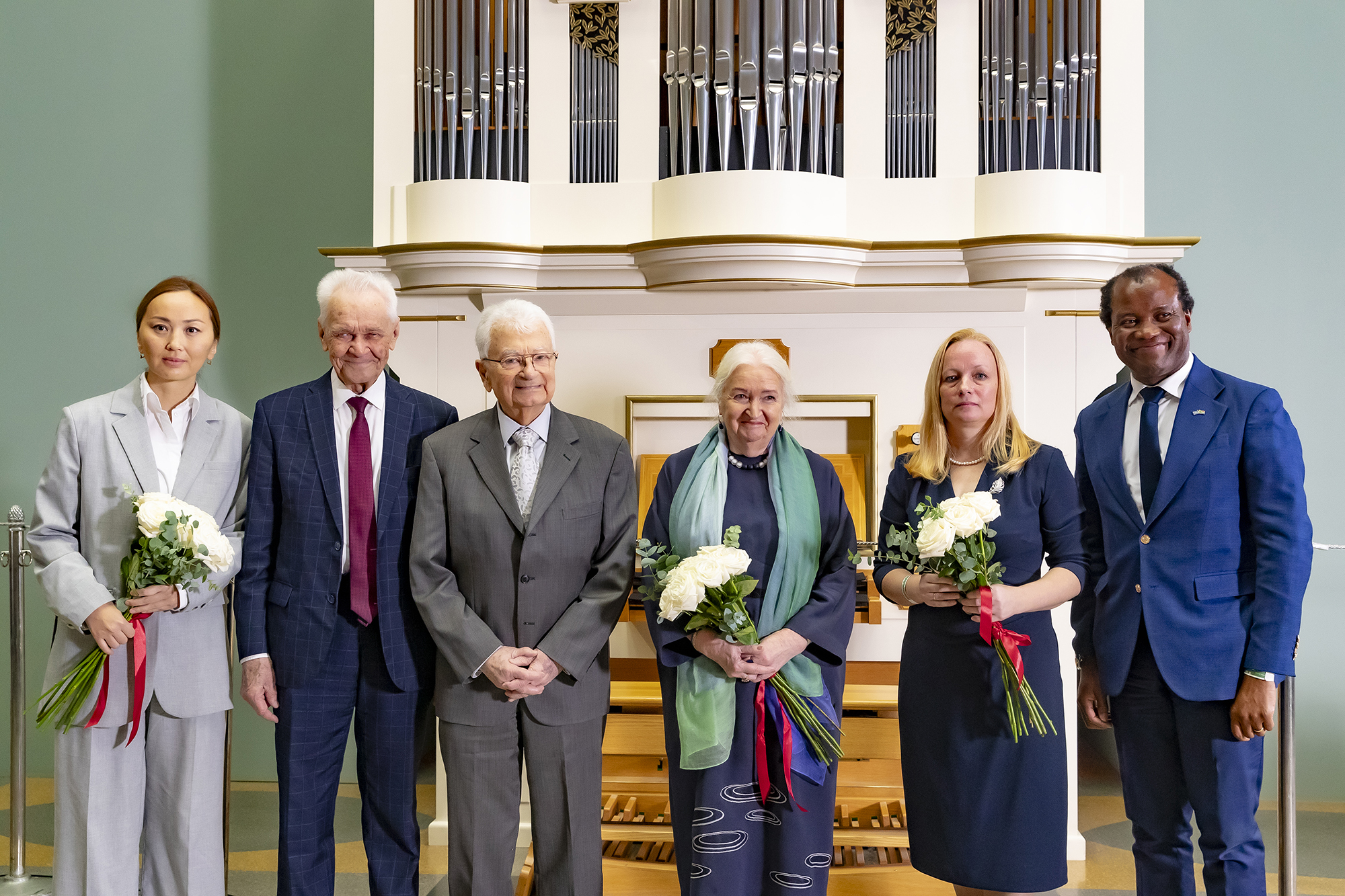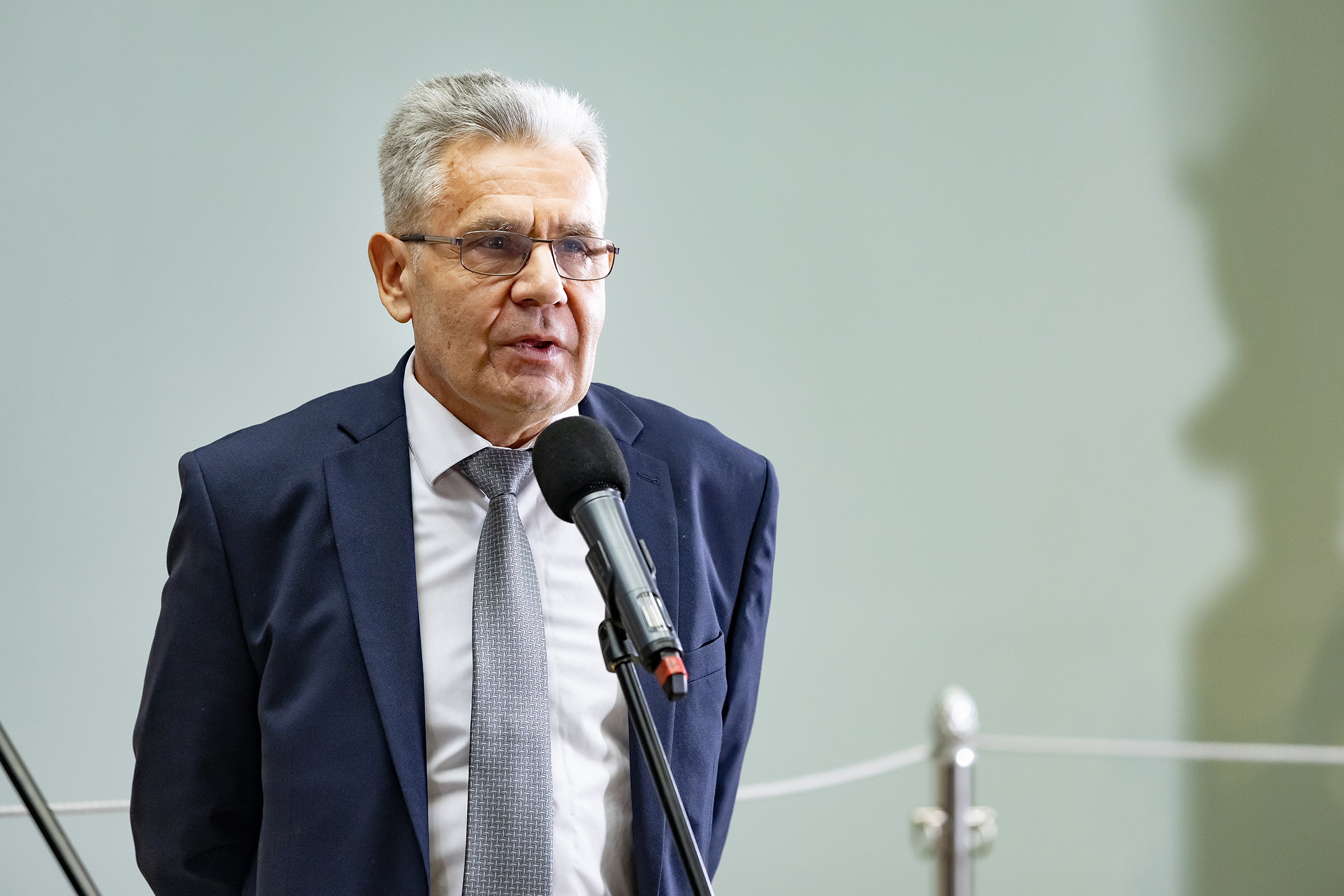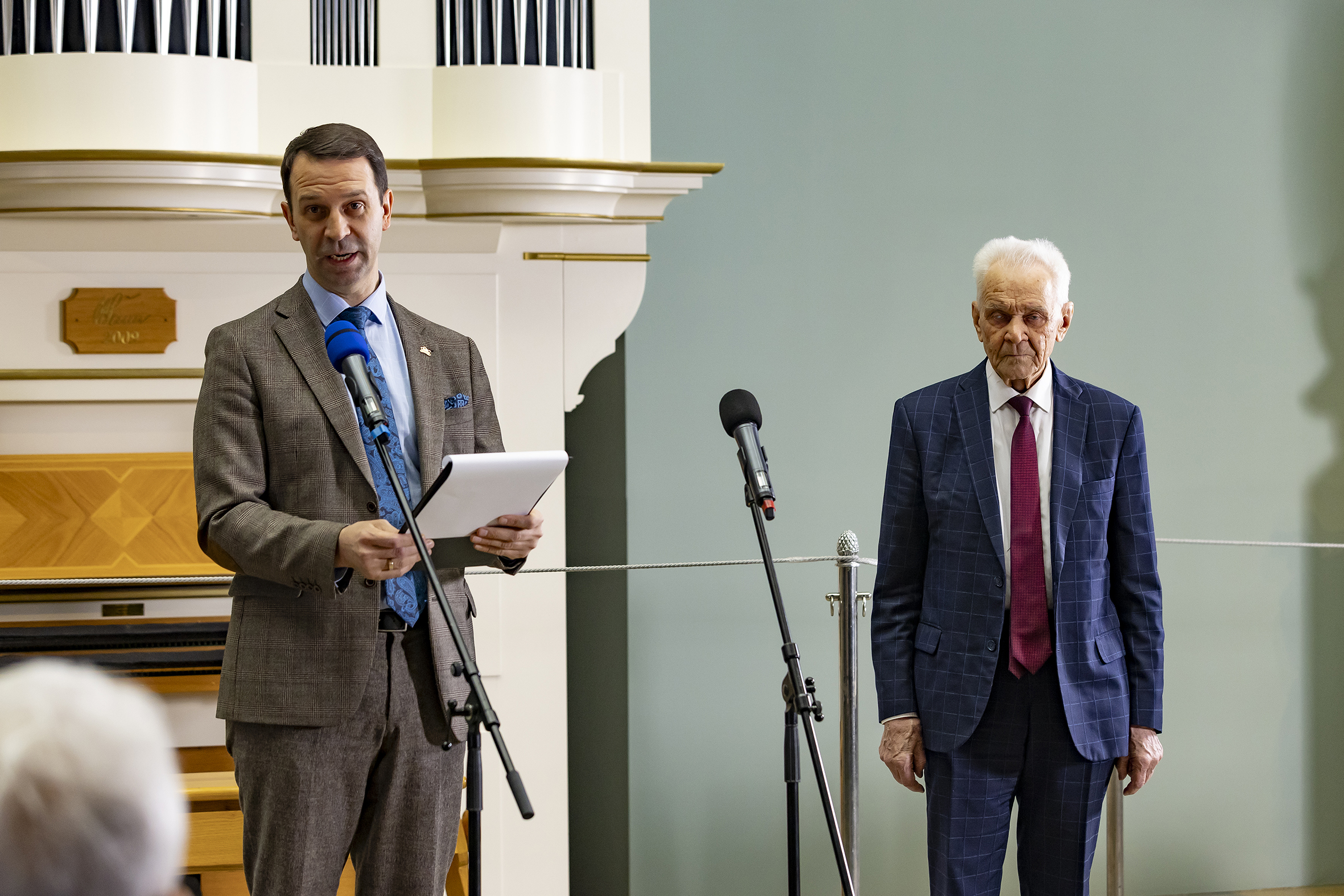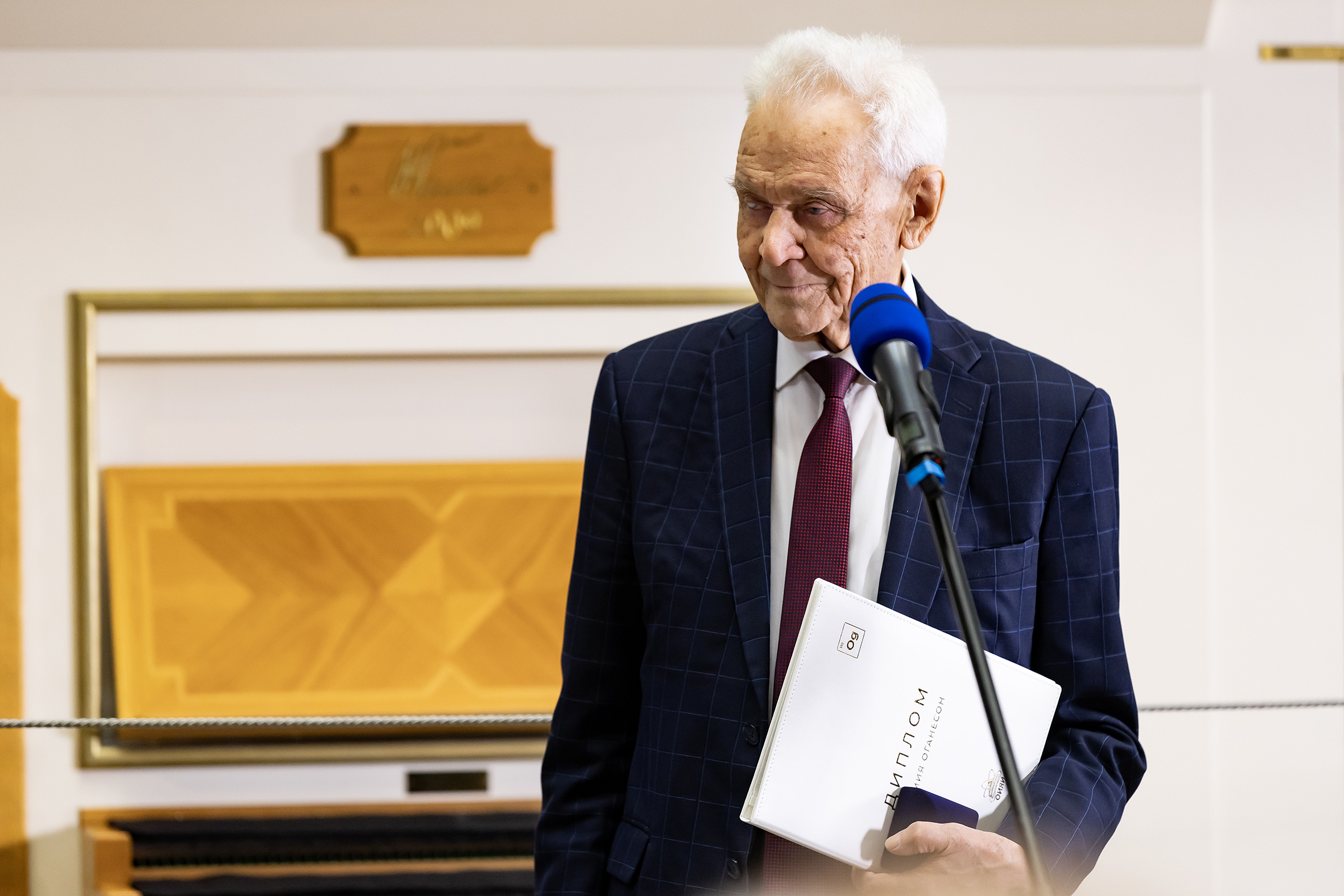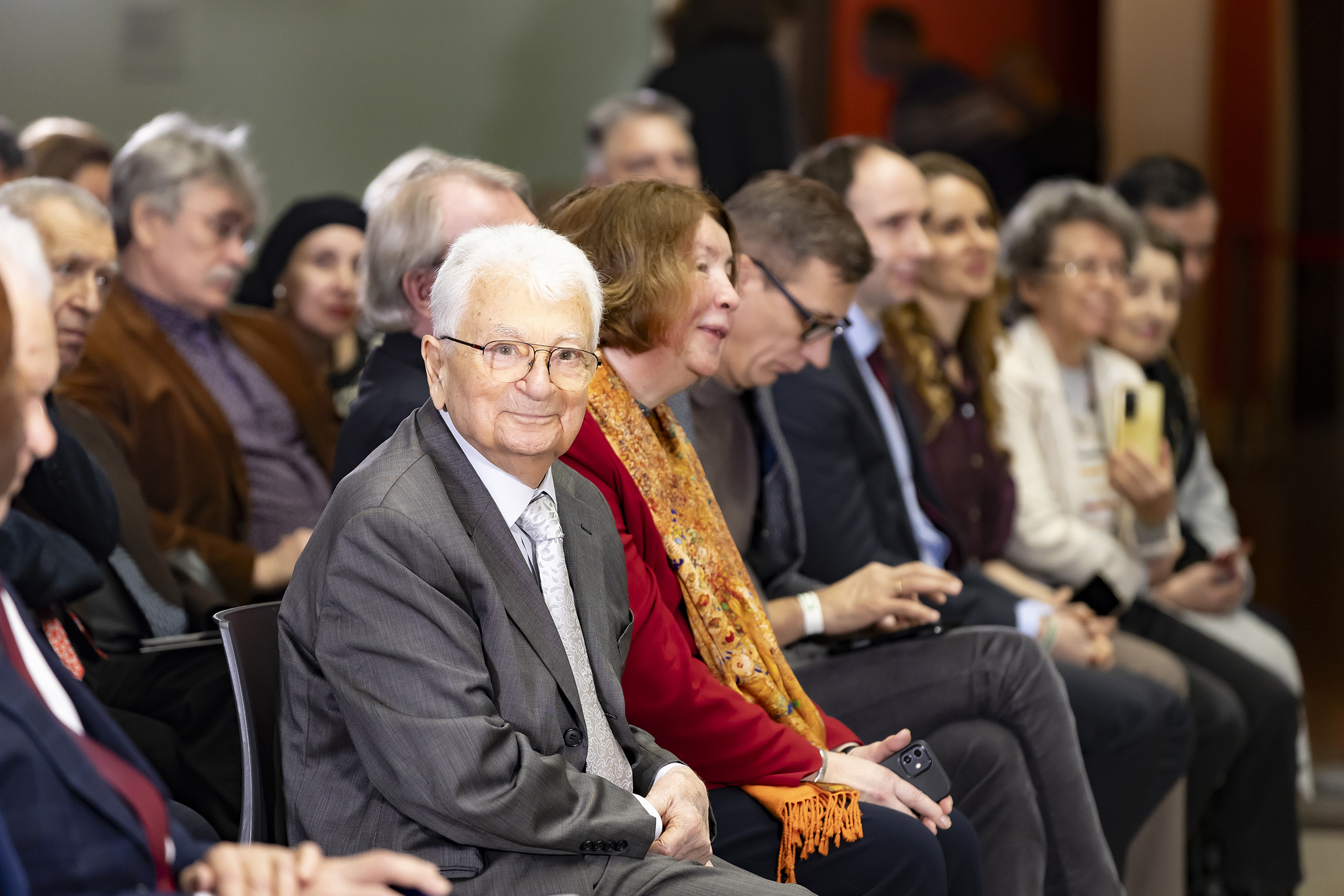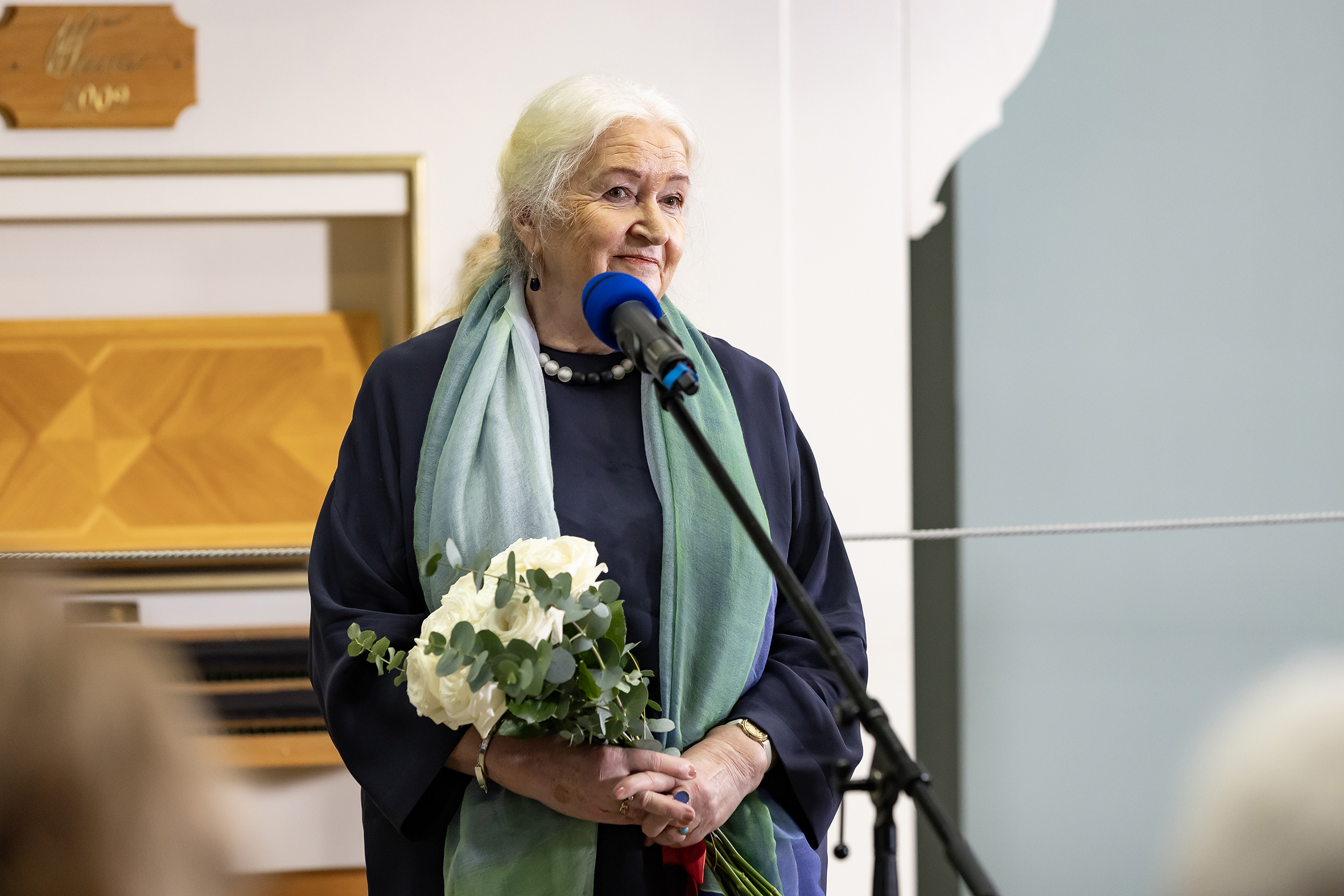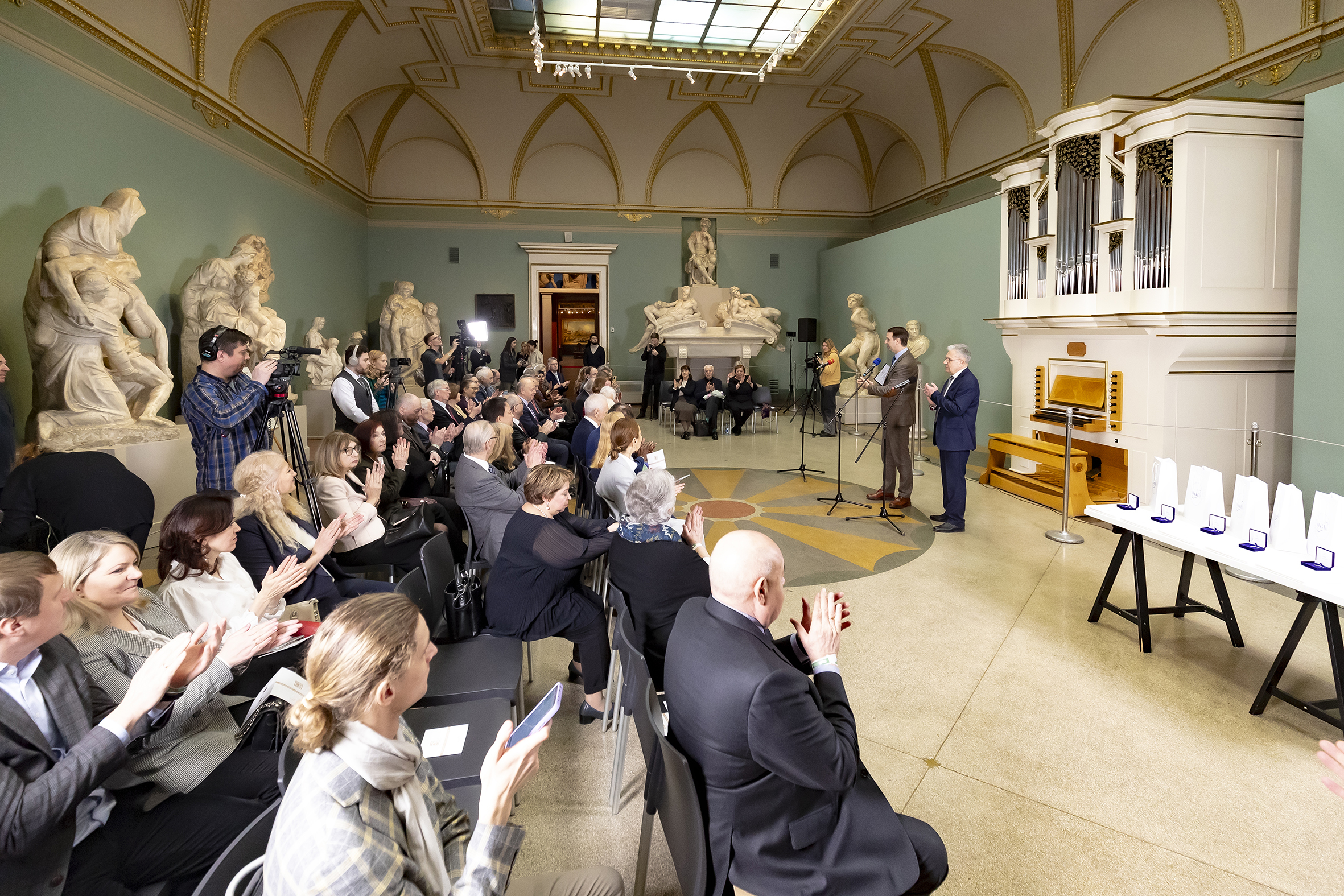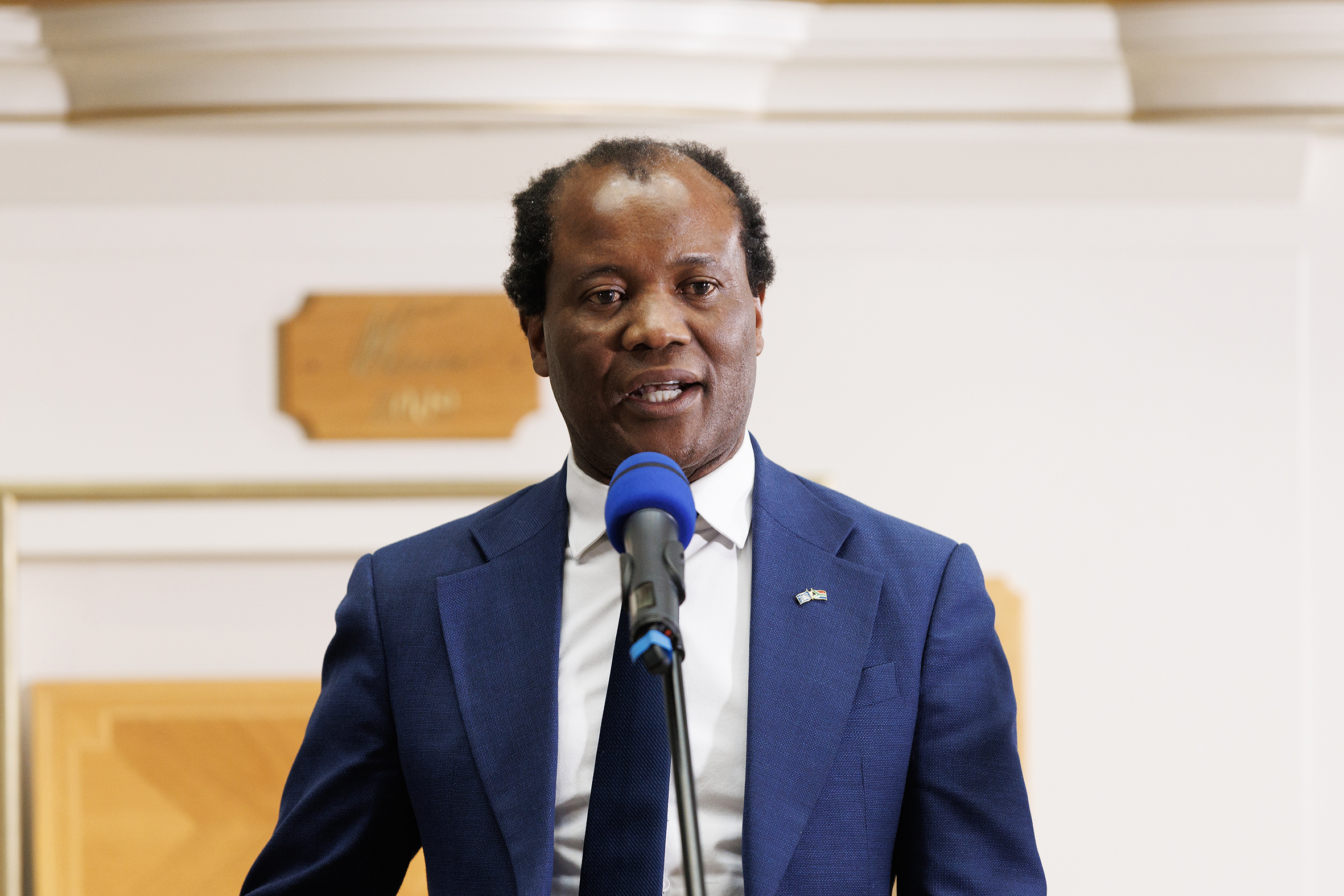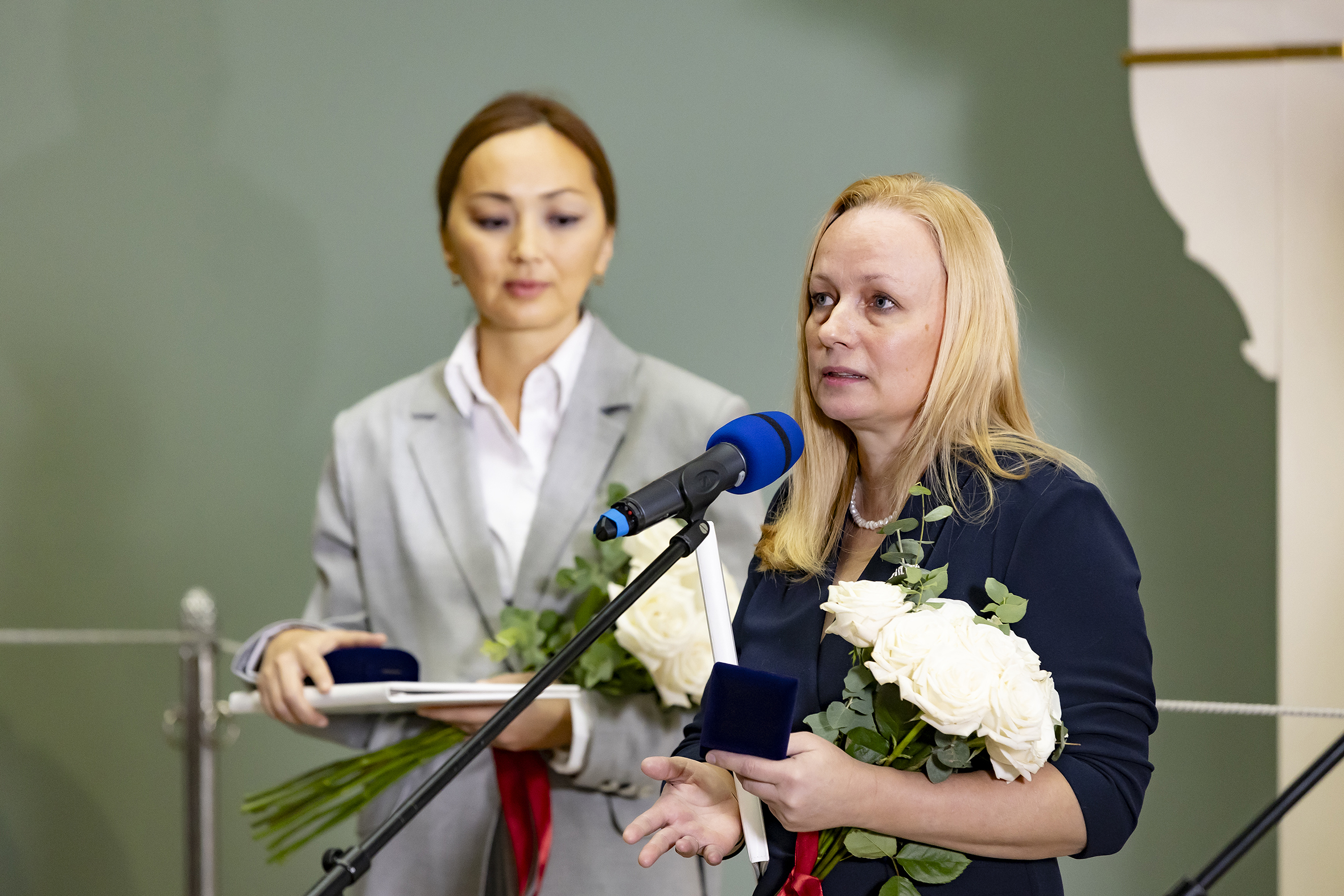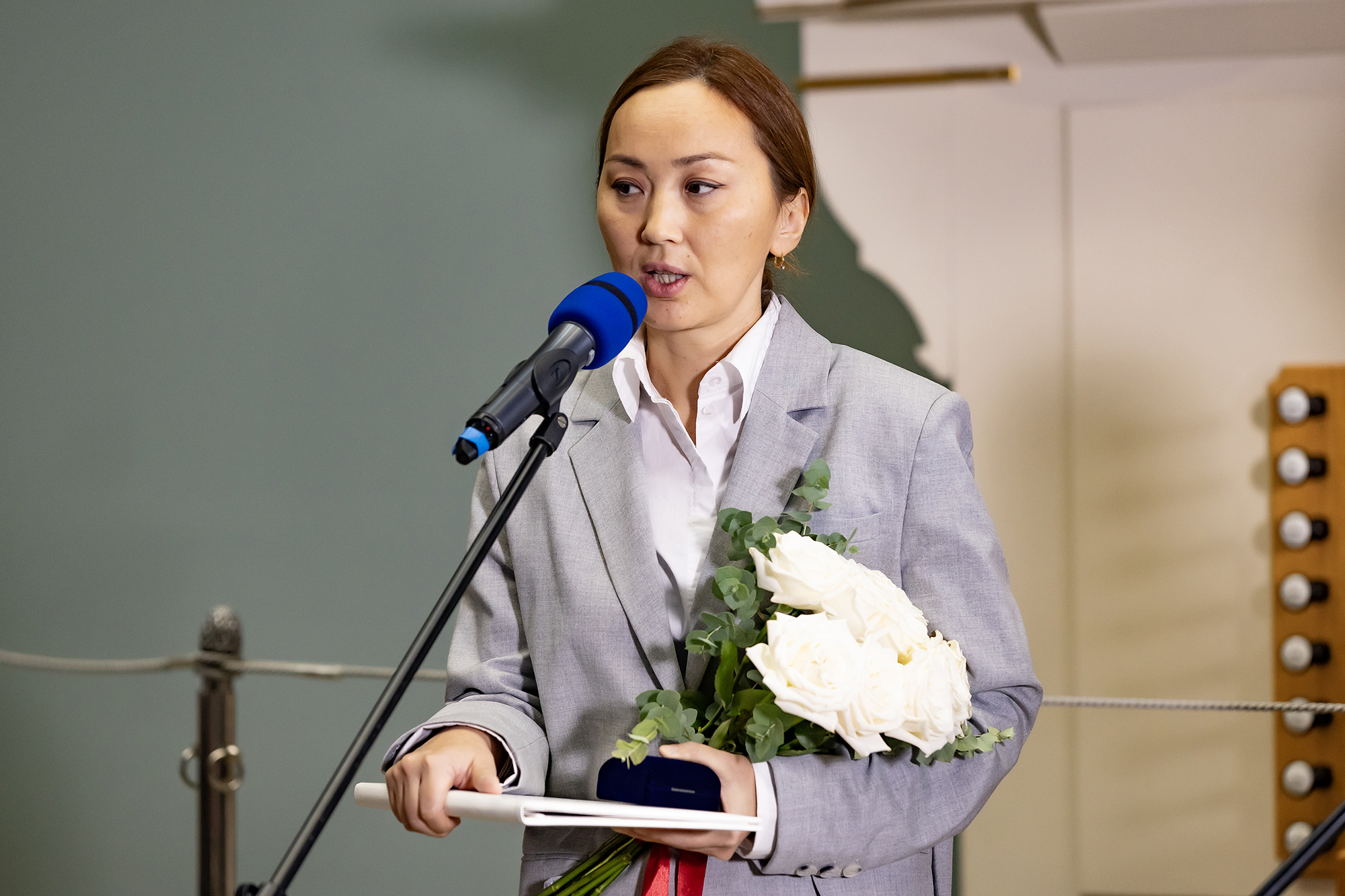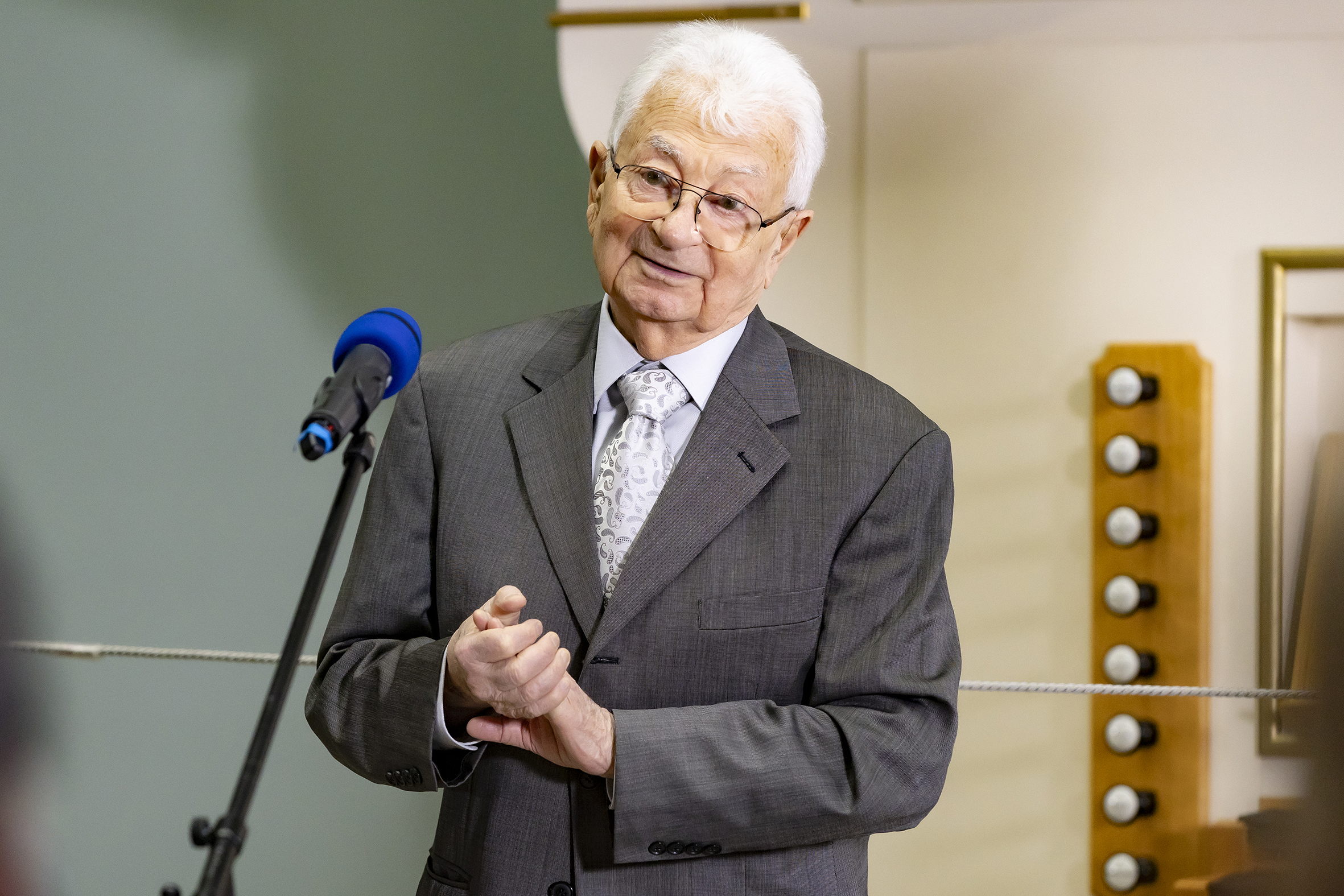Outstanding scientists of Kazakhstan, Russia, and South Africa awarded OGANESSON-2024 Prize
News, 18 February 2025
The ceremony took place on 14 February 2025 at the Pushkin State Museum of Fine Arts (Moscow). The founders of the prize are Academician of the Russian Academy of Sciences (RAS) Yuri Oganessian and the Joint Institute for Nuclear Research.
The OGANESSON Prize is awarded annually for significant achievements in theoretical and experimental research in physics, chemistry, biology, and applied problems as well as creative endeavours that popularise science by means of educational and scientific activities.
JINR Director, RAS Academician Grigory Trubnikov greeted the guests in the Michelangelo Hall of the Moscow State Museum of Fine Arts. He thanked the Russian Ministry of Science and Higher Education, Ministry of Culture, and Ministry of Foreign Affairs, along with the Russian Academy of Sciences and the Directorate of the Pushkin Museum, for their support in hosting the OGANESSON Prize ceremony.
OGANESSON Prize Committee Chair, Scientific Leader of the Russian National Centre for Physics and Mathematics, RAS Academician Alexander Sergeev expressed hope for continuing to annually award the prize and expanding the community of scientists and cultural figures who will receive it. “I see a great future for the prize through the fellowship of laureates that has now begun to form and will become one of the most brilliant communities in Russian and world science,” he said.
Chief Researcher at the Department of Analytical Chemistry of Moscow State University, Chief Researcher at the Institute of General and Inorganic Chemistry, Doctor of Chemical Sciences, Academician Yuri Zolotov received the prize for outstanding achievements in analytical chemistry and great personal contribution to the training of young scientists, specialists, and highly qualified personnel.
Yuri Zolotov created the hydrate-solvate extraction mechanism, a classic chemical method that has been used in science for several decades. Together with his colleagues, he developed a large number of extraction methods for separating complex substance mixtures, including those for the purposes of radiochemistry and hydrometallurgy. Under his leadership, conditions for the sorption of polycyclic aromatic hydrocarbons, phenols, and other cationic and anionic surfactants were found, which is extremely important for the development of environmental protection methods.
“I would like to consider this prize as a recognition of the importance of the field I work in, analytical chemistry,” Yuri Zolotov said. He recalled the times of collaborative work with employees of the Joint Institute 50 years ago, in particular with Georgy Flerov, and noted the special enthusiasm with which one of the JINR founding fathers worked.
When introducing Director of the Institute of Cognitive Research of Saint Petersburg State University Tatiana Chernigovskaya, Alexander Sergeev mentioned the increased relevance of neuroscience and the importance of effectively responding to the challenges posed by the active AI development. “The future of our children depends on us: in no case should we allow the degradation of our society, and your experience, skill, and influence are crucial to making a difference,” he added.
Tatiana Chernigovskaya is an Honoured Worker of Higher Education and an Honoured Scientist of the Russian Federation. She led the creation of the first Russian Master’s programmes in psycholinguistics and cognitive science as well as international educational training programmes for specialists from the United States and Europe. Tatiana Chernigovskaya is the author of over 300 scientific papers published in leading international journals. She received the OGANESSON Prize for outstanding contribution to the popularisation of science and the development of interdisciplinary research at the intersection of neuroscience, linguistics, and psychology.
“The more you do science, the less you understand. The questions we are currently asking are the kind of questions that only children or very experienced scientists ask,” Tatiana Chernigovskaya emphasised in her speech. She noted that with the modern world’s rapid development, neural networks are already competing with humans in terms of intelligence, though unlike humans, AI cannot recreate a work of art or make a scientific breakthrough. Tatiana Chernigovskaya highlighted the importance of connecting these areas. “We must go to museums, watch great films, read great books, and listen to great music. Only then will we be successful in science,” Tatiana Chernigovskaya said.
The winner in the nomination for researchers whose work is related to strengthening international scientific and technical cooperation was Zeblon Vilakazi, Vice-Chancellor and Principal of the Wits University (South Africa), member of the Academy of Science of South Africa, fellow of the Royal Society of Great Britain, visiting scientist at the Alternative Energies and Atomic Energy Commission. Professor Vilakazi was honoured with the OGANESSON Prize for significant contribution to the development of scientific cooperation between South Africa and JINR in nuclear reactions, accelerator technologies, and relativistic nuclear physics.
In his speech, Professor Vilakazi mentioned the South African branch of ethics and humanistic philosophy called Ubuntu (Zulu for humanity), one of the fundamental principles of which is the concept of the unity of people and their connection to the world. “If you want to go fast, go alone. But if you want to go far, go with others,” he quoted an African proverb. “The beautiful majestic art of science requires all of us, not alone as nations, but all of us as a collective of nations to work together,” he added.
In the nomination for scientists who achieved remarkable success at an early stage of their career, the OGANESSON Prize for 2024 was awarded to:
- Aliya Nurmukhanbetova, Candidate of Physics and Mathematics, Researcher at Nazarbayev University (the Republic of Kazakhstan) – for the development and implementation of a new programme for the study of the lightest nuclei at the DC-60 Low-Energy Ion Accelerator;
- Galina Knyazheva, Candidate of Physics and Mathematics, Senior Researcher at the Laboratory of Nuclear Reactions at JINR – for pioneering work on the observation and study of the heavy nuclei quasifission.
Thanks to the efforts of Aliya Nurmukhanbetova, promising research areas in atomic nuclei structure were found at the accelerator complex based on the DC-60 Cyclotron, which was designed at FLNR JINR for the Interdisciplinary Research Complex at the Eurasian National University.
Aliya Nurmukhanbetova expressed gratitude to Yuri T. Oganessian and JINR for the award and thanked her teachers, colleagues, and parents for their help and support. “Many wonderful people have helped us along the way, and I believe that there will be more of those who support young scientists,” she added.
Galina Knyazheva emphasised that for her, as an employee of the Laboratory of Nuclear Reactions with Yuri Oganessian as Scientific Leader, this award has a special value. “We do research on new methods for the production of superheavy nuclei. We’ve been studying this for a long time, but we still don’t know the answers. I hope that the truth is somewhere nearby,” she said. In addition, she thanked Yuri Oganessian and Mikhail Itkis for their support and advice that helped the FLNR JINR team to work productively.
The founder of the award, Academician Yuri Oganessian, emphasised the idea that became the evening’s central theme: the relevance of the synergy between science and art as multifaceted forms of human creativity. At the conclusion of the ceremony, Academician Oganessian congratulated the laureates and wished them further scientific success.
In 2022, Scientific Leader of the Laboratory of Nuclear Reactions at JINR Yuri Oganessian received the first Sber Scientific Prize for fundamental work on the synthesis of superheavy elements. Yuri T. Oganessian decided to direct the 20 million roubles that he received to support young scientists and popularisers of science by establishing the OGANESSON Prize. The first award ceremony took place in Moscow in February 2023.
